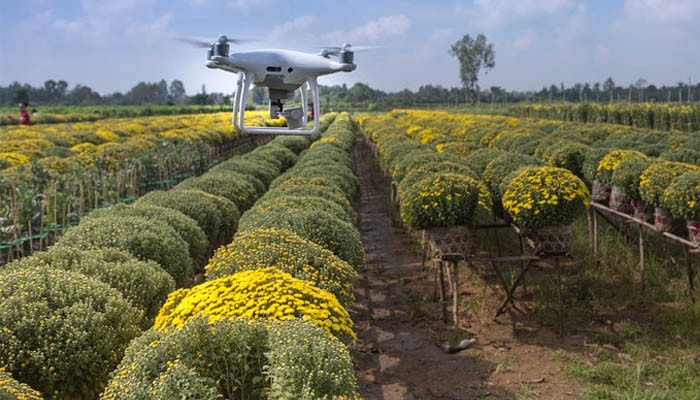
Nigeria's agriculture is at a critical juncture, desperately in need of transformation. Embracing cutting-edge technology and sustainable practices is the way forward. In this article, we delve into the potential of this powerful duo to revolutionize Nigerian agriculture. The possibilities are endless, from boosting yields and minimizing waste to fostering economic growth and environmental preservation. Get ready to witness the next agricultural revolution in Nigeria!
The Role of Technology in Revolutionizing Agriculture
Advancements in agricultural technology
In today's rapidly evolving world, technology has become a game-changer in every industry, including agriculture. Nigeria's agricultural sector has witnessed significant advancements that hold the key to revolutionizing farming. From sophisticated machinery and equipment to digital innovations, the possibilities are endless.
Benefits of technology adoption in agriculture
1. Increased productivity and efficiency
By incorporating technology into farming practices, Nigerian farmers can experience a remarkable boost in productivity and efficiency. Automated machinery, precision planting, and real-time data analysis enable farmers to optimize their operations and maximize yields.
2. Reduction in post-harvest losses
One of the major challenges faced by Nigerian farmers is post-harvest losses. However, technology-driven solutions such as advanced storage facilities, pest monitoring systems, and automated quality control processes can significantly reduce these losses, ensuring that more produce reaches the market.
3.Improved access to markets and information
Technology has bridged the gap between farmers and markets, providing them with valuable information about prices, demand, and market trends. Mobile apps, online platforms, and digital marketplaces empower farmers to connect directly with buyers, eliminate intermediaries, and make informed decisions.
Examples of successful technology-driven initiatives in Nigerian agriculture
Mobile apps for farm management and market access
1.Apps like Farmcrowdy and AgroCenta have revolutionized farm management and market access in Nigeria. They provide farmers with vital information, weather updates, pest control strategies, and direct links to buyers, simplifying the entire agricultural value chain.
2. Precision farming and smart irrigation systems
Precision farming techniques like soil sensors, remote monitoring, and automated irrigation systems are revolutionizing Nigerian agriculture. These technologies enable farmers to optimize resource utilization, conserve water, and ensure precise application of fertilizers and pesticides.
3. Drones and satellite imagery for monitoring and crop health assessment
Drones and satellite imagery have emerged as powerful tools for monitoring and assessing crop health. They can quickly identify areas of pest infestation, nutrient deficiencies, or water stress, enabling farmers to take timely corrective actions and improve overall crop performance.
Sustainable Practices for Agricultural Development
Importance of sustainable practices in agriculture
Sustainable practices are vital for Nigeria's agricultural sector's long-term viability and resilience. They prioritize the careful stewardship of natural resources, minimize environmental impact, and ensure food security for future generations. Farmers can maintain soil fertility, preserve biodiversity, and mitigate climate change effects by adopting sustainable practices.
Challenges to sustainable agriculture in Nigeria
Nigeria faces several challenges in implementing sustainable agriculture. Limited access to resources, inadequate knowledge about sustainable practices, and the prevalence of traditional farming methods hinder progress. Climate change-related issues such as unpredictable weather patterns and water scarcity pose significant obstacles.
Promoting sustainable practices
1. Conservation agriculture and soil management techniques
Conservation agriculture, including practices like minimum tillage, crop rotation, and cover cropping, promotes soil health and reduces erosion. By adopting these techniques, Nigerian farmers can enhance soil fertility, conserve moisture, and improve long-term agricultural productivity.
Organic farming and Agroecology
Organic farming practices minimize the use of synthetic inputs, prioritize natural pest control methods, and maintain ecological balance. Encouraging organic farming and agroecology can protect soil quality, reduce chemical runoff, and enhance biodiversity in Nigeria's agricultural landscapes.
Water conservation and efficient irrigation methods
Given the water scarcity challenges, implementing water conservation and efficient irrigation methods is crucial. Drip irrigation, rainwater harvesting, and precision irrigation technologies can optimize water usage, minimize waste, and ensure crops receive adequate moisture without overconsumption.
#WassupNaija
Written by Ola Abiodun, a copywriter with ten years of experience, he is passionate about technology and has assisted hundreds of businesses by using his copy to turn visitors into paying clients.